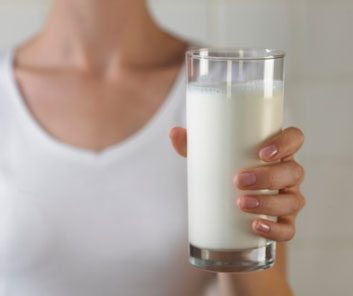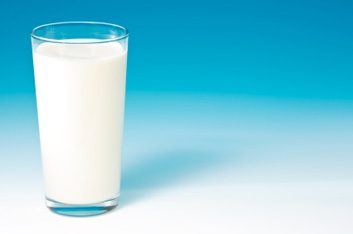
Important health benefits
Many of us grew up with the idea that milk is a must-have for a healthy diet. But lately milk’s health properties have come into question. Some people avoid it, fearing it will make them gain weight, while a few grassroots groups have claimed it can cause diseases ranging from osteoporosis to Alzheimer’s. So is milk bad news?
It is for those with a true allergy to it, which accounts for about one percent of adults. They must avoid cow’s milk (and may opt for rice or soy beverages). Some with lactose intolerance-which affects at least seven million Canadians who don’t produce an enzyme to break down lactose, the sugar found in milk-may also opt for rice, soy or goat’s milk. ( “Goat’s milk has a slightly different protein structure that, for some people, may be more easily digestible,” says Desirée Nielsen, a registered dietitian in Delta, B.C.) But many people who are lactose intolerant can drink cow’s milk if they take the enzyme lactase with it, or they can try lactose-free milk instead.
What about everyone else; is milk good? “For most people, milk doesn’t cause any problems,” says Dr. Dara Maker, a Toronto physician. In fact, it offers important health benefits. Here are three.

It’s packed with healthy nutrients
Canada’s Food Guide recommends adults have two dairy servings a day-three if you’re 51 or over. Milk is extremely high in calcium; one cup (250 mL) of 2% milk contains 302 mg (the RDI, or recommended daily intake, for women age 19 to 50 is 1,000 mg a day). And it contains a number of other vitamins and minerals, such as magnesium, potassium, zinc, vitamins A and K, and most of the B vitamins. Plus, milk in Canada is fortified with vitamin D, which can otherwise be hard for us to come by in our northern climate-since sunshine is the main source. “Vitamin D is required to help you absorb calcium through your intestinal wall, and calcium helps to build up the bones,” says Maker. “If you don’t have a proper balance of those two nutrients, it leads to osteoporosis.”
Milk is also packed with protein, points out Nielsen. “A cup has nine grams of protein, which is a lot.” That’s more than two slices of turkey breast, which has eight grams. And chocolate milk is being called the new sports drink because it’s loaded with more carbs and electrolytes than white milk, and it contains protein for muscle repair.

It may fight disease
A 2008 study at Harvard Medical School found that low-fat milk can reduce high blood pressure. And data from the American Institute for Cancer Research shows evidence that milk probably protects against colorectal cancer. (However, the same study finds “limited evidence” that men who consume a diet high in milk and dairy products may be at risk for prostate cancer.)
Several studies have demonstrated the virus-fighting properties of lactoferrin and other milk components. A 2009 review at the universities of Reading, Cardiff and Bristol in the U.K. concluded that drinking milk is associated with longer life in Western society.
As for claims that drinking milk actually causes osteoporosis or Alzheimer’s disease, Nielsen says there is no solid evidence to back them up. Some studies have made a correlation between milk consumption and acne. “With chronic acne, people might find some relief by removing milk from their diet,” she says.

It maintains a healthy weight
Choosing low-fat milk, such as skim, is the best way to reap benefits without taking in as much fat, say experts. In fact, the buzz is that milk may help you stay slim: It’s associated with lower weight in some studies. Nielsen says this is because milk makes you feel full, turning semi-solid in the stomach.

Be a smart consumer
What about claims that growth hormones and pesticides are in our milk? According to Dairy Farmers of Canada (DFC), growth hormones are not permitted in Canadian dairy cattle. To ensure hormone-free milk, look for the DFC’s logo on products. Some people concerned about pesticides in cattle feed opt for organic milk, but there’s no proof it’s better. Raw (unpasteurized) milk is illegal to buy here, to protect against bacterial contamination. (It’s not illegal to drink it, however, and an Ontario dairy farmer recently won the right to distribute raw milk to members of his dairy co-op only.)
The bottom line? While milk may cause problems for some, research shows it’s a powerhouse of wellness for most people.
Related:
• What is lactose intolerance?
• What’s the deal with milk substitutes?
• The best sources of vitamin D
